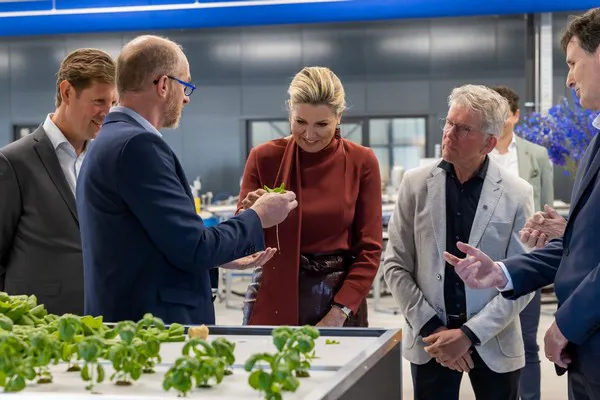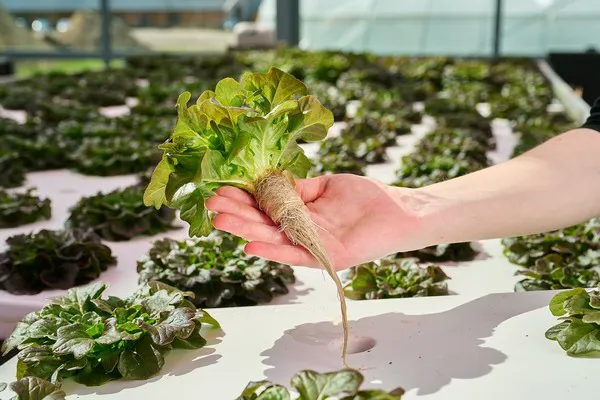The horticultural sector is developing rapidly in terms of sustainability and precision cultivation. There is a strong need for sustainable alternatives. We notice this also in the changing demand for growing media. There is an increasing need for substrates that perform better in sustainable, high-tech growing systems.
We need to move towards a climate-neutral substrate industry and meet the growing demand for renewable substrates. To reinforce this ambition, Ted Vollebregt, besides managing director of Klasmann-Deilmann, also chairman of the Association of Potting Soil and Substrate Manufacturers Netherlands, signed the Dutch covenant 'Environmental Impact of Potting Soil and Substrate Manufacturers Netherlands,' together with 14 other parties from the Dutch substrate industry. They agreed to make every effort to supply only substrates that have no negative impact on the environment and are CO2 neutral by 2050. And that is a big challenge for substrate developers.

That was in November 2022. The big news now? Klasmann-Deilmann and Maan Biobased Products (developer of their shared product Growcoon) were able to develop a promising fiber out of biodegradable and biobased raw materials with exactly the right properties for intensive, sustainable cultivation. And it is called, Nygaia.
The biggest challenge they confronted
In particular, finding the perfect balance between performance and sustainability. In the first place, a substrate must facilitate plant growth. For instance, by providing good water-holding capacity and sufficient stability. But achieving these properties with environmentally friendly and renewable materials is not an easy task, and the fiber in itself is not enough.
"If we want to become significantly more sustainable, we need to look at the total ecological and carbon footprint of a product. In short: what goes in, what goes out? Finding a substrate that scores well on all fronts is a complex task and requires a multidisciplinary approach."
Raymond van Ispelen, Product Specialist at Klasmann-Deilmann, says: "For several years now, we have been working on a remarkable biodegradable substrate. A concept in which the total impact of the product is key. How should we imagine this? At least not as an off-the-shelf product that is shipped around the world in large quantities and leaves many traces (or requires a lot of energy and chemicals to recycle)."
"We have succeeded in producing a working prototype, which we are now testing on a rapidly growing scale. Its fiber breaks down completely under the right conditions. Zero waste, in other words. And it consists of more than 60% natural raw materials. The fiber is inert and contains no nutritional value of its own. In addition, it provides good root support. We have been testing the product ourselves for quite some time and are amazed by the results we are achieving," says Raymond.

'It is our ultimate dream to supply both a semi-finished product and the automation to produce fresh substrate fiber locally (e.g., by the grower himself). This would give the grower more control and reduce the number of transport movements by a factor of 40(!). It's not that far yet, but every day we take another step towards realizing that dream."
Raymond: "On April 5, we presented our brand under the watchful eye of H.M. Queen Máxima, Queen of the Netherlands. That was a very special moment. During GreenTech, we hope to introduce our product to a broad (horticultural) audience and work towards an international market introduction. So keep an eye on us!"
For more information:
Klasmann-Deilmann
www.klasmann-deilmann.com
